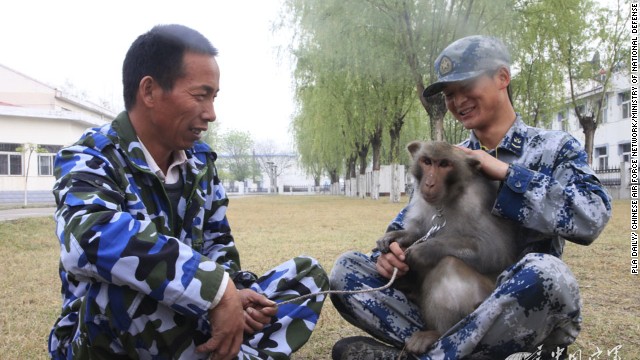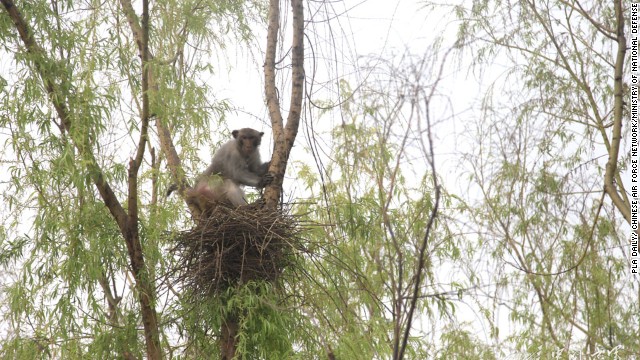This week, CNN reported that the
People’s Liberation Army in China has been using trained macaques as part of
its defensive strategy.
These clever primates guard the
safety of Chinese Pilots by warding off swarms of birds that threaten planes in
mid-flight. The birds could be sucked into plane engines, destroying life and
(very expensive) property. The macaques climb up trees where the birds nest,
scaring them off, and leave behind a scent that discourages them from
returning.

"The monkeys are loyal
bodyguards who defend the safety of our comrades," a Chinese news source
reported a PLA officer as saying.
The clever primates are being
trained and used at air force base in northern China whose location was not
disclosed, but which happens to sit along a major migratory route for birds
heading south from the Gobi Desert. PLA officers have been joking that they
have a new “secret weapon,” controllable with a whistle.
CNN reports
that, in the past, the PLA have employed several different strategies to remove
the nests including shooting them out of the treetops, using long bamboo poles
to knock them out of trees, and having soldiers climb the trees to remove them.
None of these options have been very humanitarian, or very effective due to the
birds’ tendency to return and the time-consuming task of removing them. However,
when the task is carried out by monkeys, the birds do not return.

But the real story here has much
larger implications. If unpredictable swarms birds are all it takes to endanger
Chinese military technology, and trained macaques are all it takes to bring
down those birds, is this not exposing certain technological weaknesses in
Chinese military capability? Why not use swarms of birds to take out China’s
air forces on the battlefield? Perhaps the suggestion is ridiculous, but the
rabbit hole could go much deeper. Just how strong are those turbine engines? We
shouldn’t rule anything out when dealing with China. They certainly haven’t, as
evidenced by their using little furry friends to fix this problem.




No comments:
Post a Comment